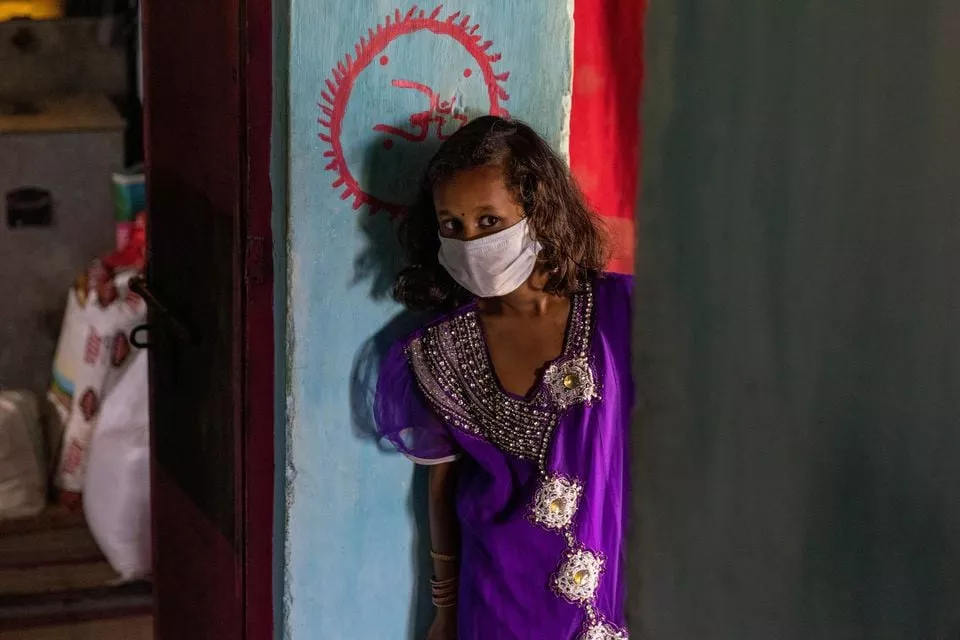Delta variant and the fourth wave: Should we be worried?
Over 40 cases of the variant reported in Karachi; 16 cases reported in Balochistan
With the rising number of cases in what might be the fourth wave of Covid-19 in Pakistan, authorities have urged fully vaccinated people to continue wearing masks, practise social distancing and other pandemic safety measures as yet another highly contagious mutation of the coronavirus - the Delta variant - spreads rapidly across the globe.
'Variant of Concern':
After almost two years, the world still remains largely susceptible to the virus, thanks to the Delta variant. First identified in India, the WHO declared Delta a 'variant of concern' as it is shown to be more contagious, more deadly and more resistant to current vaccines and treatments.
According to virus experts and epidemiologists the Delta variant, also known as B.1.617.2, can spread more easily. The strain has mutations on the spike protein that make it easier for it to infect human cells. That means people may be more contagious if they contract the virus and more easily spread it to others. The first Delta case in the United States was diagnosed in March, and it is now the dominant strain in the US.
In an episode of WHO's conversation on Covid-19, American epidemiologist Dr Maria Van Kerkhove said, "the Delta variant is a variant of concern because we know it has increased transmissibility. This has been demonstrated by several countries. And we know that where the Delta variant is identified, it really rapidly takes off and spreads between people more efficiently than even the Alpha variant that was first detected around December, January 2021."
Alarming Surge In Pakistan:
As many as 15 people were diagnosed with the Delta variant in the Rawalpindi district earlier in July. As of this week, over 40 cases of the variant have been reported in Karachi, while 16 cases have been reported in Balochistan.
The Delta variant is now making up a whopping 50% of the total infections in Pakistan, Federal Parliamentary Health Secretary Dr Nausheen Hamid said on Tuesday.
History:
The highly contagious Delta variant was first identified in India in December 2020. It wreaked havoc in India and has led to a major outbreak across the globe since.
As of early July, the Delta variant has become the dominant form of the coronavirus in the United States, United Kingdom and Germany, among others. While the strain has spread across 104 countries across the world, the UK has been affected the most, with Delta being detected in around 97% of new Covid-19 cases, according to Public Health England.
Subvariant:
Like Delta, its subvariant Delta Plus was also first identified in India. In June, only about 40 cases of Delta Plus infections were reported by Indian health officials. However, health authorities are raising concern since the subvariant allows the virus to damage lung cells and potentially escape vaccines.
Health experts cite a number of factors that contribute to subvariants and an increased transmission around the world. One of the major factors being the relaxed lockdowns and increased social mixing and social mobility. Another factor being the uneven and inequitable distribution of vaccines.
Common Symptoms:
While most symptoms largely depend on the immune systems of individuals, common symptoms of the Delta variant are similar to those seen with the original coronavirus strain and other variants, including a persistent cough, headache, fever, and a sore throat.
What If I'm Vaccinated?
In another episode of WHO's conversation on Covid-19, WHO's Chief Scientist Dr Soumya Swaminathan explains that being vaccinated by a vaccine that is approved by WHO is crucial.
While the German company CureVac cited variants as one of the reasons its Covid vaccine proved to be just 47% effective in a 40,000-person clinical trial, an analysis from Public Health England found two doses of the Pfizer-BioNTech or the AstraZeneca Covid-19 vaccines as highly effective against hospitalization from the Delta variant.
"So the main goal of these vaccines is really to prevent severe disease because what we want is for people, even if they get the infection, is for them to recover from it and not become seriously ill," explains Dr Swaminathan.


COMMENTS
Comments are moderated and generally will be posted if they are on-topic and not abusive.
For more information, please see our Comments FAQ